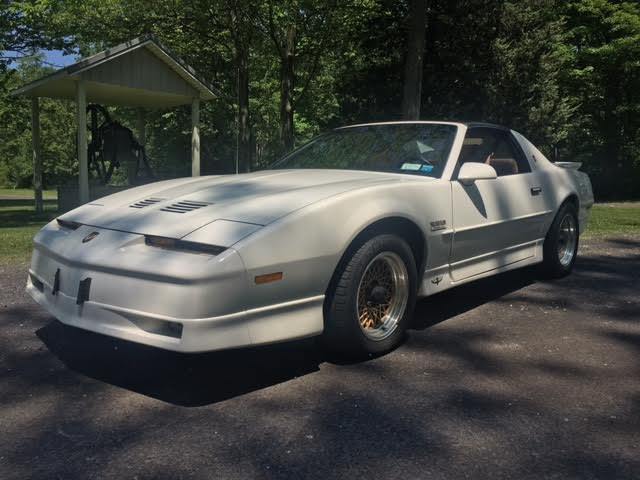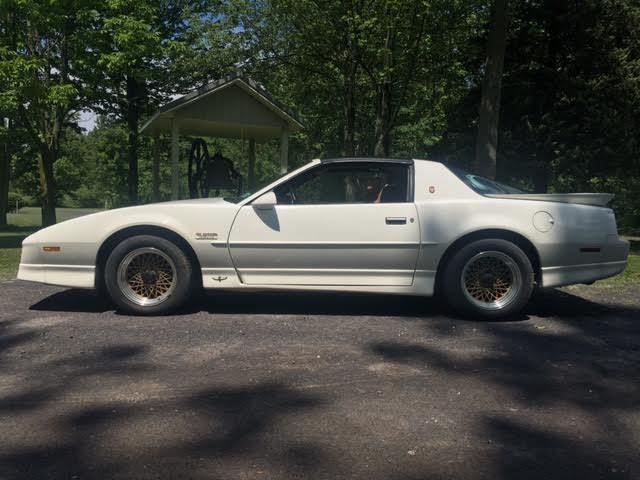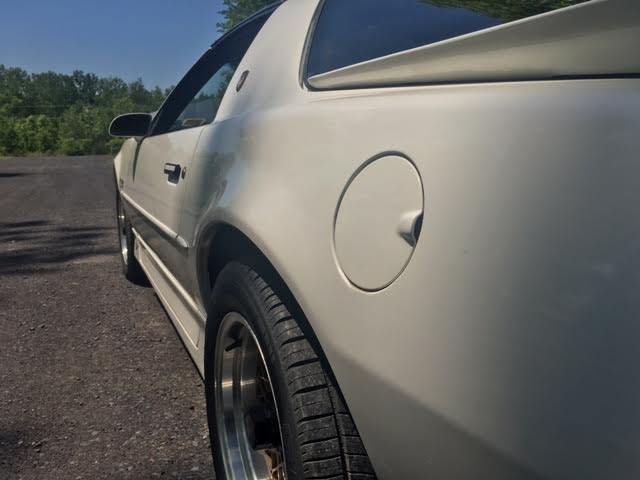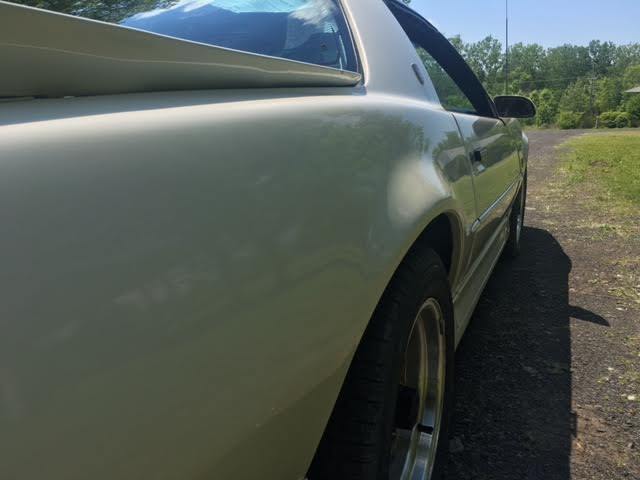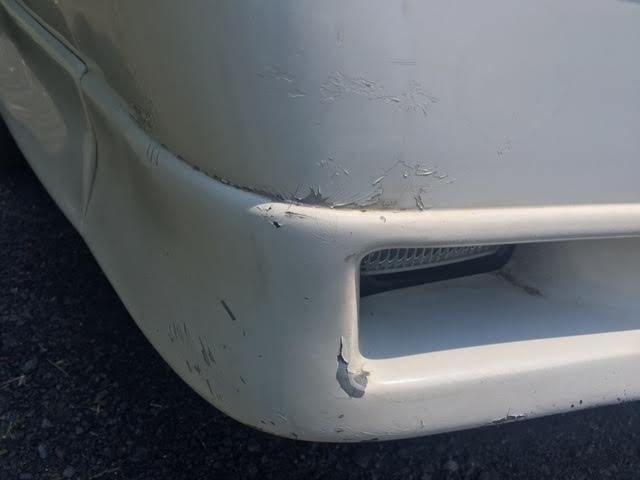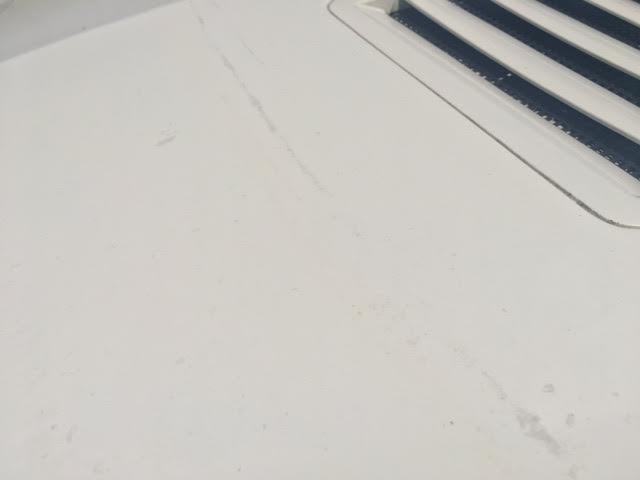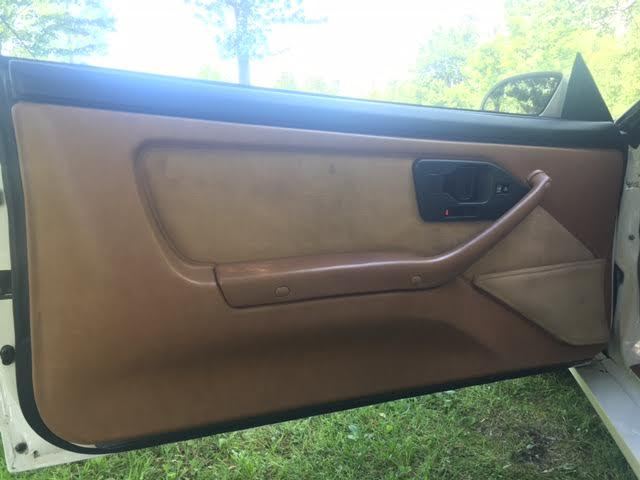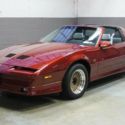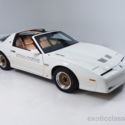1989 Pontiac Trans-Am TTA 43k miles
| Make: | Pontiac |
| Model: | Trans Am |
| Type: | Coupe |
| Trim: | TTA |
| Year: | 1989 |
| Mileage: | 43,301 |
| VIN: | 1G5FW2177KL235648 |
| Color: | White |
| Engine: | 3.8 |
| Cylinders: | 6 |
| Fuel: | Gasoline |
| Transmission: | Automatic |
| Drive type: | RWD |
| Interior color: | Tan |
| Drive side: | Right-hand drive |
| Vehicle Title: | Clear |
| Item location: | Wolcott, New York, United States |
1989 Pontiac Trans Am TTA Additional Info:
Looking to stand out from the crowd? Thinking of a great investment? This 1989 Pontiac Trans-Am TTA is the perfect fit. With only 43,301 actual miles you will be hard pressed to find another one like it since only 1555 were produced. The near perfect interior brings you back to a time when a muscle car was fun. That long sweeping hood line gives the impression that you are ready to take on the world. Everyone will stare at you when you drive this car by. All services are up to date and it is ready for its next owner to enjoy.Production
Originally conceived by Bill Owen of Pontiac, the 20th Anniversary Turbo Trans Am project was outsourced to PAS, Inc., an engineering firm led by Jeff Beitzel. Beitzel and his team did most of theTTA development work. The V6 turbo engines were built by PAS at their 40,000 square foot City of Industry, CA plant. From there, they went to GM's plant in Van Nuys, CA to be installed into GTAs on the F-Body assembly line. The cars were then shipped back to PAS for final assembly, testing, and quality control. Incidentally, the GTA chassis were selected at random, thus there is no correlation between VIN number and production sequence number. The actual number of cars to be produced had ranged from 500 to 2,500 until GM finally settled on 1,500. In all, a total of1,555 Turbo TAswere manufactured.
Features and OptionsThe 20th Anniversary Turbo Trans Am was offered as a complete package. Each was white with saddle (tan) interior, with T-tops and leather interior the only available options. Although other TAs were available with a CD player, the Turbo TA was available only with a Delco ETR AM/FM cassette with graphic EQ and redundant steering wheel controls.
Externally, the TTA closely resembles a GTA. The primary visual clues are Indy "WingedTire" emblems on the ground effects panel just aft of the front wheel wells, and dual twin stainless-steel exhaust tips. Closer inspection reveals "Turbo" emblems on the front fenders, "20th Anniversary" emblems on the nose and B-pillar, and a "Turbo" insignia between the taillights. Inside, aturbo boost gaugeis incorporated into the tachometer face, and there is a "20th Anniversary" logo on the leather map pocket. Special Indy Pace Car stickers were supplied for the windshield and doors. The cars were delivered without the stickers attached - it was up to the individual owner to apply them if desired.
Original Turbo TA owners were sent a special box containing the door and windshield stickers, a Turbo TA keychain, cassette tape,letter of congratulationsand a leather owners manual cover. There is a unique owners manual supplement that came with the car. As with most GM vehicles, the Firebird service manual and TTA supplement can beordered from Helm(publisher of GM service manuals).
What makes the 20th Anniversary Turbo TA so special is that it is a complete mechanical package, and not just some tape stripes. Starting with the engine, Pontiac borrowed Buick's 3.8 liter (231cid) V6 turbo powerplant from the fabled 1986-87 Grand National. Some difference exist between the TTA motor and the GN version.Different headswere necessary in order to squeeze the motor between the strut towers. These heads, adapted from the transverse FWD version of the 3.8 liter motor, have the added benefit of improved exhaust flow and combustion chamber design. Subsequently, different pistons were required in order to maintain combustion chamber volume. Other changes to the TTA motor are across-drilled crank, larger 12 fin/inchGNX-style intercoolerin place of the GN's 10 fin/inch design, specially-designedstainless-steel headers, higher-pressure Bosch 237 fuel pressure regulator, and a recalibrated engine control module.
Mark Grable, writing in the March 1989 Motor Trend, noted the Turbo Trans Am's "250 horses...seem much stronger than run-of-the-mill horses." The reason is simple. AlthoughPontiac officially rated the engine at 250 HP, in reality it developed an honest 301 HP on the GM dyno.
The Turbo TA came with the rare1LE racing brake package, which upgrades the front discs to 12 inch police rotors, Corvette twin piston aluminum calipers and semi-metallic pads. These brakes are virtually fade proof, and were installed to legalize the 1LE package for Firehawk endurance racing. The rear discs were also increased to 12 inches in 1989 and use Corvette single piston calipers. All of the brakes on the car are of a quick change design, and pads can actually be changed in 30 seconds.
The only mid-year change made to the Turbo TA during the entire production run was aredesigned turbo inlet tube. The redesigned plastic tube was more durable, and had a clamping rib on either end to keep the hoses attached more securely. Other production changes in 1989 affected the Turbo TA and F-bodies in general. As an example, in March 1989 GM switched from glass to Lexan T-tops in order to save weight. However, the Lexan tops had severe problems with scratching and cracking, and GM had to replace most of them under warranty. During the 1990 production run GM switched back to glass T-tops after having so many problems with the Lexan ones.
The 20th Anniversary Turbo Trans Am had the honor of being selected as the Official Pace Car of the 73rd Indianapolis 500, held on May 28, 1989. The three cars which did pace car duty were the first in the history of the Indianapolis 500 to do so with no performancemodifications whatsoever. The only changes to the car were the usual safety equipment required by Indianapolis Motor Speedway (including a five-point seat belt harness), pace car lighting, and television-related equipment.
Strobe lights were installed into the front fog lights, front turn signals, and side marker lights. Anadditional set of strobeswas inserted into the space between the spoiler and decklid. The rear windows were changed to ones with no defogger grid, so the rear-facing ABC television camera would have a clear view of the track behind.
In addition to three pace cars, an additional 162 "Festival" TTAs were at Indy for VIP and parade duty. All of the cars at Indy, including the three pace cars, had T-tops and cloth interiors.
Approximately one hundred festival cars were sold to GM employees at the fixed price of $25,854.83. It was not a raffle, an interested employee simply had to fill out a form indicating they wanted the car at that price. Price was non-negotiable, and there was no choice of car. These buyers received cars with anywhere from a few hundred to 7,000 miles on them.
As for the three pace cars, one now resides in the Indianapolis Motor Speedway Museum,another is in the Pontiac collection, and one was presented to race winner Emerson Fittipaldi. Emerson loves his Turbo TA, when asked about it he grinned "It's a FAST car!"
